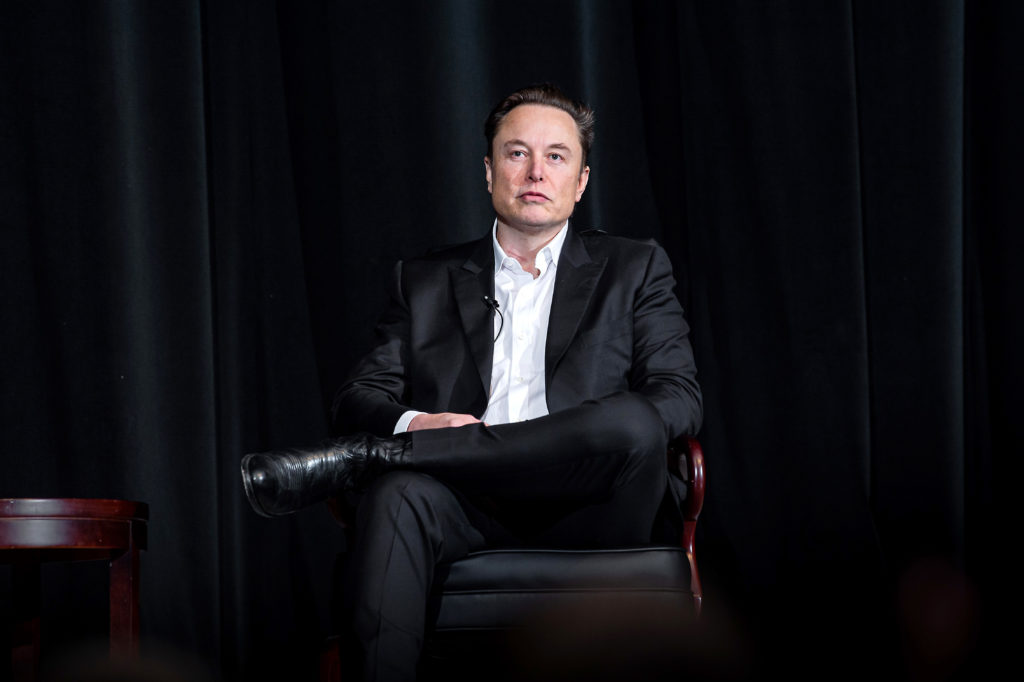The following is a condensed version of “Public Enemy Number One?” by John O. McGinnis, published at Law & Liberty.
Elon Musk’s brilliant career was made by possible by three things: his relentless genius, America’s openness to foreign born talents, and the dynamism of capitalism. Walter Isaacson’s fine new biography highlights the first factor but is less strong on the influence of the second two, even as he provides ample information that demonstrate their importance. And despite his success and immense wealth, Musk remains at risk of ultimate failure—not only because of the occasional hubris and instability of his genius, but because of the decline of American respect for the freedoms that makes robust capitalism possible.
Musk’s ambitions are not even primarily about making money. He sees his work with Telsa as battling climate change, Space X as leading to interplanetary travel, and his various artificial intelligence ventures as advancing a friendly AI that will not threaten humanity. As Isaacson notes, he has a cosmic self-image with a destiny to safeguard civilization.
The key to Musk’s business achievements has been his implacable efforts at cutting the costs of his products’ components. His motto is that the only constraints on such efforts are physical laws, not the traditions of industry or even the regulations of government. “Step one should be to question the requirements,” he says. “Make them less wrong and dumb because all requirements are somewhat wrong and dumb. And then delete, delete, delete.”
Musk provides a walking advertisement for the greatness of the one thousandth of the one percent. As rich as he has become, he has provided far more benefits to others—to the shareholders who have become rich with him, to the employees who take tremendous pride in their contributions and sometimes go to found their own companies based on what they have learned, and, of course, to his customers. The public benefits as well. As far as global warming is a problem, he has created the car company that most successfully reduces auto emissions.
Isaacson sees Musk as his own greatest enemy—a hero with innate tragic flaws, both his lack of empathy and his revelry in excessive risk. And these do remain potential problems. But Musk’s risk-taking has paid off, and his lack of empathy may be necessary to avoid the sentimentality that leads some leaders to indulge subordinates who slack off. In my view, by far the greatest threat to Musk is the political world. Modern America is more hostile to the rich than it once was, particularly when they are as independent and unconventional as Musk is. When Time magazine named Musk “Person of the Year in 2021,” Senator Elizabeth Warren responded with a caustic tweet: “Let’s change the tax code so the Person of the Year will actually pay taxes and stop freeloading off of everyone else.” Musk, who had sold over ten billion dollars in stock, certainly got the better of the exchange: “If you opened your eyes for two seconds you would realize I will more than any American in history this year. Don’t spend it all at once. oh wait you did already.” But power, not repartee, determines citizens’ fates in politics.
Musk’s ownership of Twitter, now renamed X, increases his political peril. The President is able simply to ignore the achievements of a car company, but not social media—it is too integral to what politicians do. And indeed, in an interview last week, Biden attacked Musk’s stewardship of Twitter/X, agreeing with a reporter that Musk has lowered the “guardrails on misinformation.” Actually, Musk has replaced unilateral decisions to police information with “community notes” that offer a decentralized way for users to add context to misleading information. What he refuses to do is suppress the kind of stories that the old Twitter did—like those about Hunter Biden in the middle of the presidential campaign.
More generally, Musk is now a target because the left benefits from decreasing the openness of social media since it dominates more traditional sources of information, from academia to the mainstream media. In the same interview, Biden cryptically warned about Musk’s possible relationships with foreign governments without providing any evidence of what he meant. The presidential megaphone can provide a particular narrative of events, cripple effective mechanisms for disseminating alternate views, and possibly even signal his preferences to zealous executive branch regulators: “Will no one rid me of this turbulent businessman?”
I have never been a fan of Ayn Rand’s novels and their simplistic portraits of heroic entrepreneurs battling politicians and bureaucrats who want to destroy them and rob us of the benefits of capitalism. But one message from Musk’s life is that Rand’s work contains a kernel of truth relevant to our age.
John O. McGinnis is the George C. Dix Professor in Constitutional Law at Northwestern University and a Contributing Editor at Law & Liberty. His book Accelerating Democracy was published by Princeton University Press in 2012. McGinnis is also the coauthor with Mike Rappaport of Originalism and the Good Constitution published by Harvard University Press in 2013 . He is a graduate of Harvard College, Balliol College, Oxford, and Harvard Law School. He has published in leading law reviews, including the Harvard, Chicago, and Stanford Law Reviews and the Yale Law Journal, and in journals of opinion, including National Affairs and National Review.

